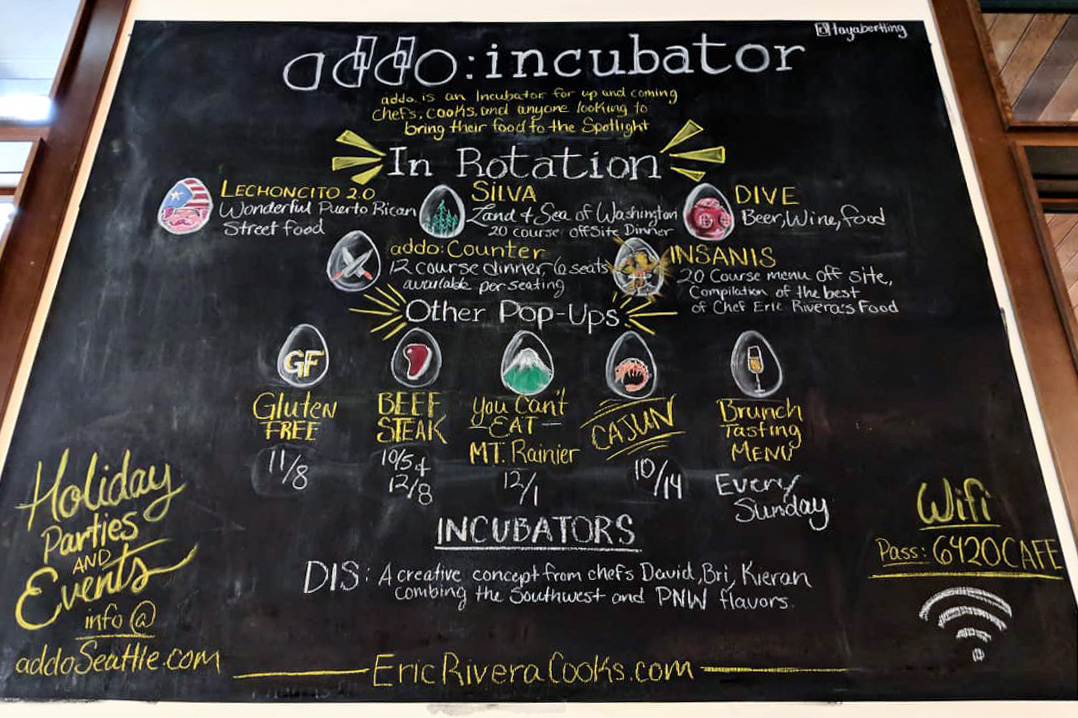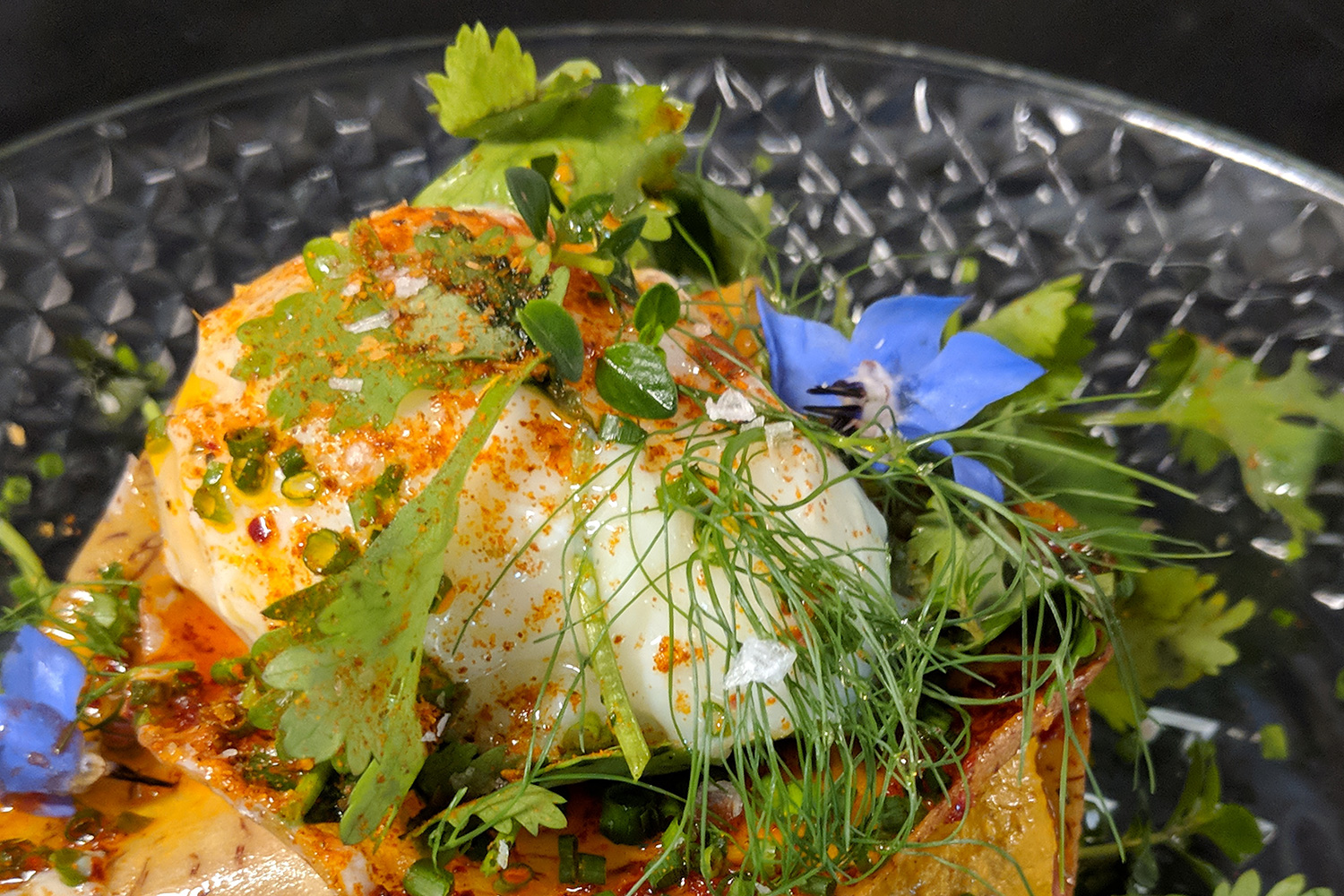You don’t simply walk into Addo; you need a ticket. And that ticket might grant you access to a $15 spaghetti night or $140 12-course meal, depending on the day. What started as two-person dinners in chef Eric Rivera’s home has grown to two locations in Seattle, Washington. At a recent Spoon food tech event, Rivera and Modernist Cuisine’s technical director, Scott Heimendinger, spoke with Spoon’s Michael Wolf about the future of restaurants.
“All the things you see within this company are things people stopped me from doing along the way,” said Rivera of Addo, which is part restaurant, part incubator for up-and-coming chefs.
The space’s pastry case features treats from a mix of bakers.
Rivera wants to get to know who’s coming to dinner before they enter the restaurant.
“I have people who work at home and have just a good cookie recipe,” Rivera said. Addo lets them build up a brand without seeking investors — something Rivera found frustrating when he was trying to open his own restaurant. Right now, his biggest marketing tool is Instagram.
“I don’t have the money to hire a marketing firm or a PR firm or any of those other things,” he said. “I never thought I would have four Instagram accounts.”
For several years, Rivera worked with chef Grant Achatz Culinary as the director of culinary operations at restaurants such as Alinea in Chicago. Tables at Alinea are booked — and paid for — two months in advance, and Rivera uses the same ticket system, Tock, for Addo. But because he’s making Puerto Rican food one night and fajitas the next, Rivera also wants to get to know who’s coming to dinner, before they enter the restaurant.

For his multi-course tasting menus, he generally sends a questionnaire. It will ask about food preferences, allergies, and dietary restrictions, but also what other restaurants you like and your favorite music.
“Having that information for me is clutch, because when I’m doing a 15-course tasting menu and it’s 20 people, that’s a lot of plates flying around,” he said.
Heimendinger would like to see that kind of consideration going into more restaurants, but in a way that’s “considerate instead of creepy.” He and Rivera were geeking out about food tech at Jet City Gastrophysics, writing about dry ice sorbet, centrifuged infused liquors, and sous vide purees back in 2010.
“Anytime you need to make yourself look 10 percent cooler, robots.
At Modernist Cuisine, Heimendinger finds tech that solves problems, like how to make food photograph well. “Anytime that you need to do something that is highly repeatable, robots. Anytime you need to do something where timing is critical, robots,” he said. “Anytime you need to make yourself look 10 percent cooler, robots.”
Rivera doesn’t see Addo getting a robot anytime soon (except maybe a Roomba), but behind the scenes, he’s using plenty of tech. In the kitchen, he uses a programmable combi-steam oven, blenders, rice cookers, pressure cookers, and coffee grinders.

A freeze dryer is on its way. That’s an example of something you’re not likely to use at home, though because of “preppers,” the price of machines is coming down. It’s an expensive technique, but Rivera is constantly trying to find ways to pack more flavor into every bite. For apple pie, he’ll freeze dry the apples, pulverize them, and sprinkle in the powder. “It’s much more concentrated,” he said.
In the past, he’s used a Genevac Rocket evaporator to make truffle juice. Typically used in laboratory settings to remove solvents from samples, Rivera made an uber-concentrated liquid that he equated to macing yourself with truffles.
Despite a kitchen chock full of gadgets, Addo also shows what ambitious amateurs can accomplish at home. And with or without inflated, freeze-dried gummy bears, there’s really only one thing Rivera wants out of his tools: “All I’m looking for is efficiency now.”







